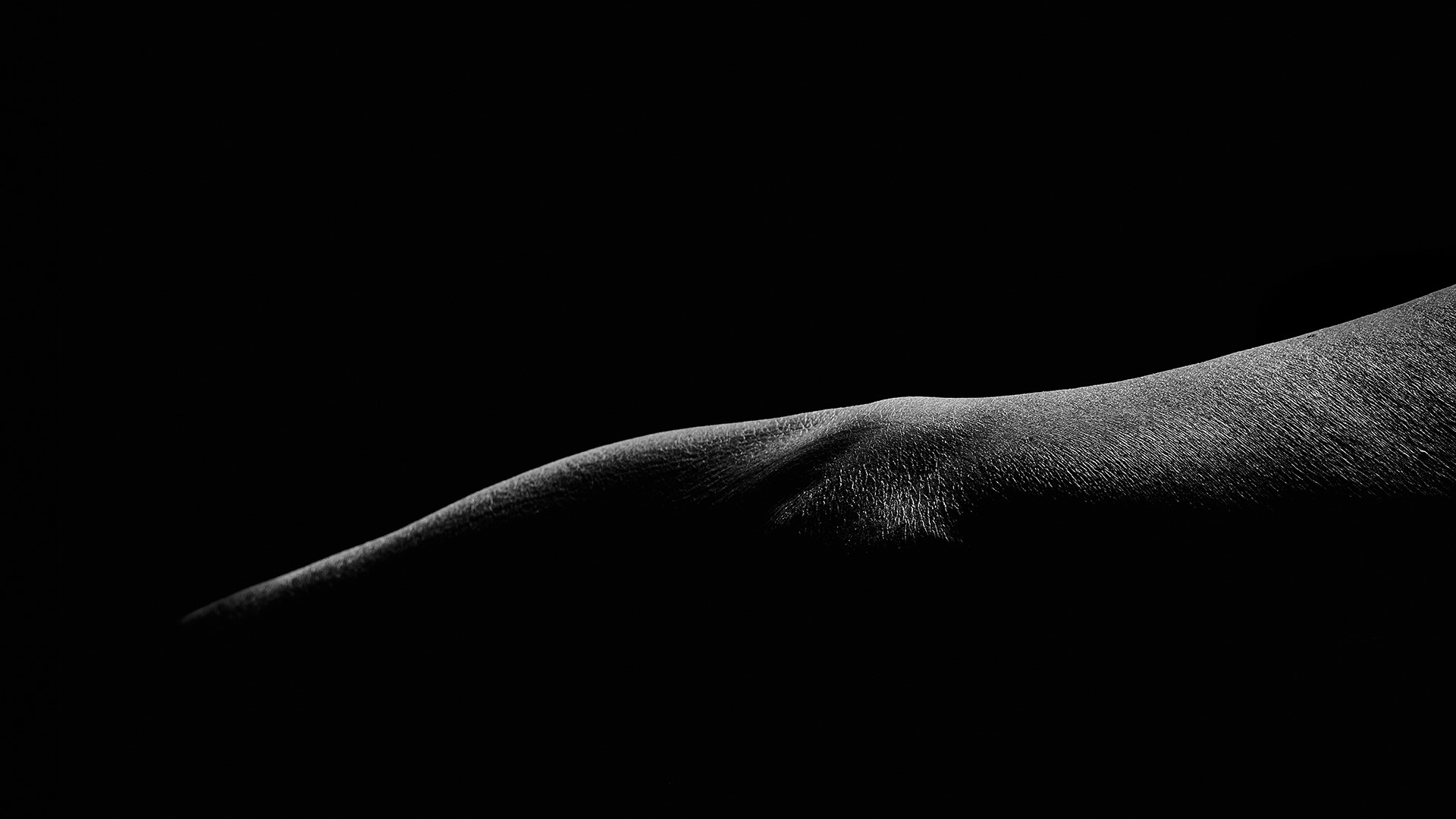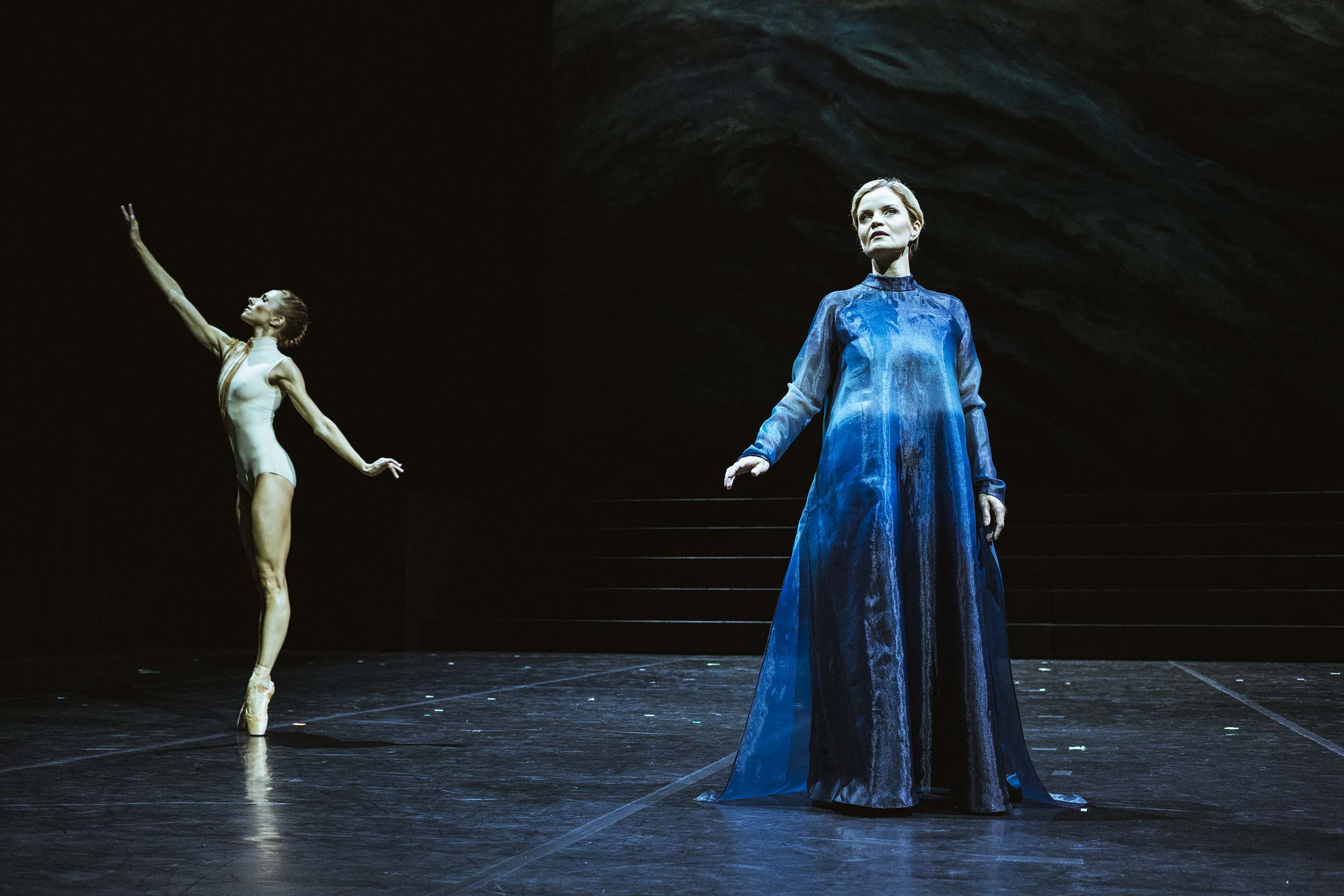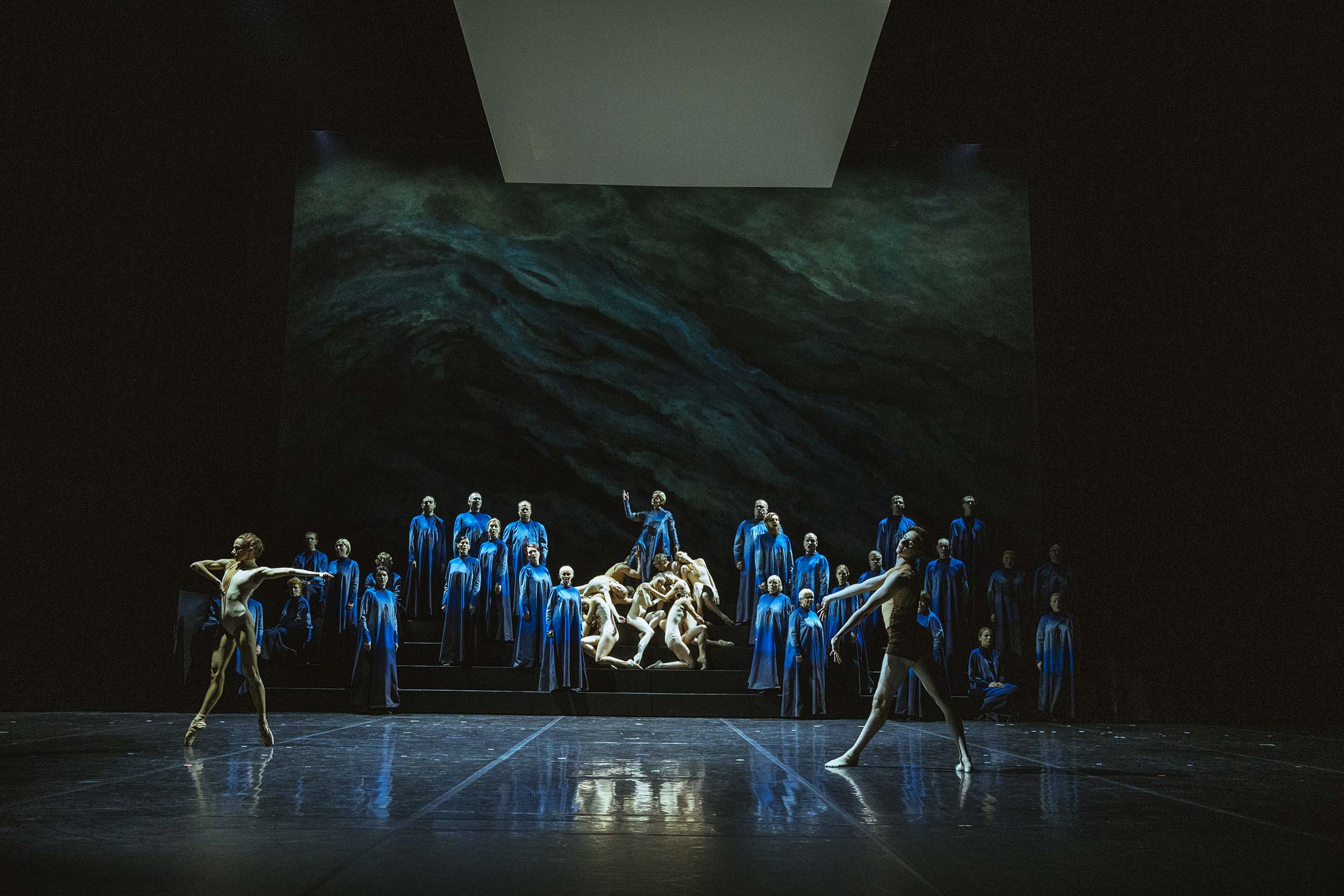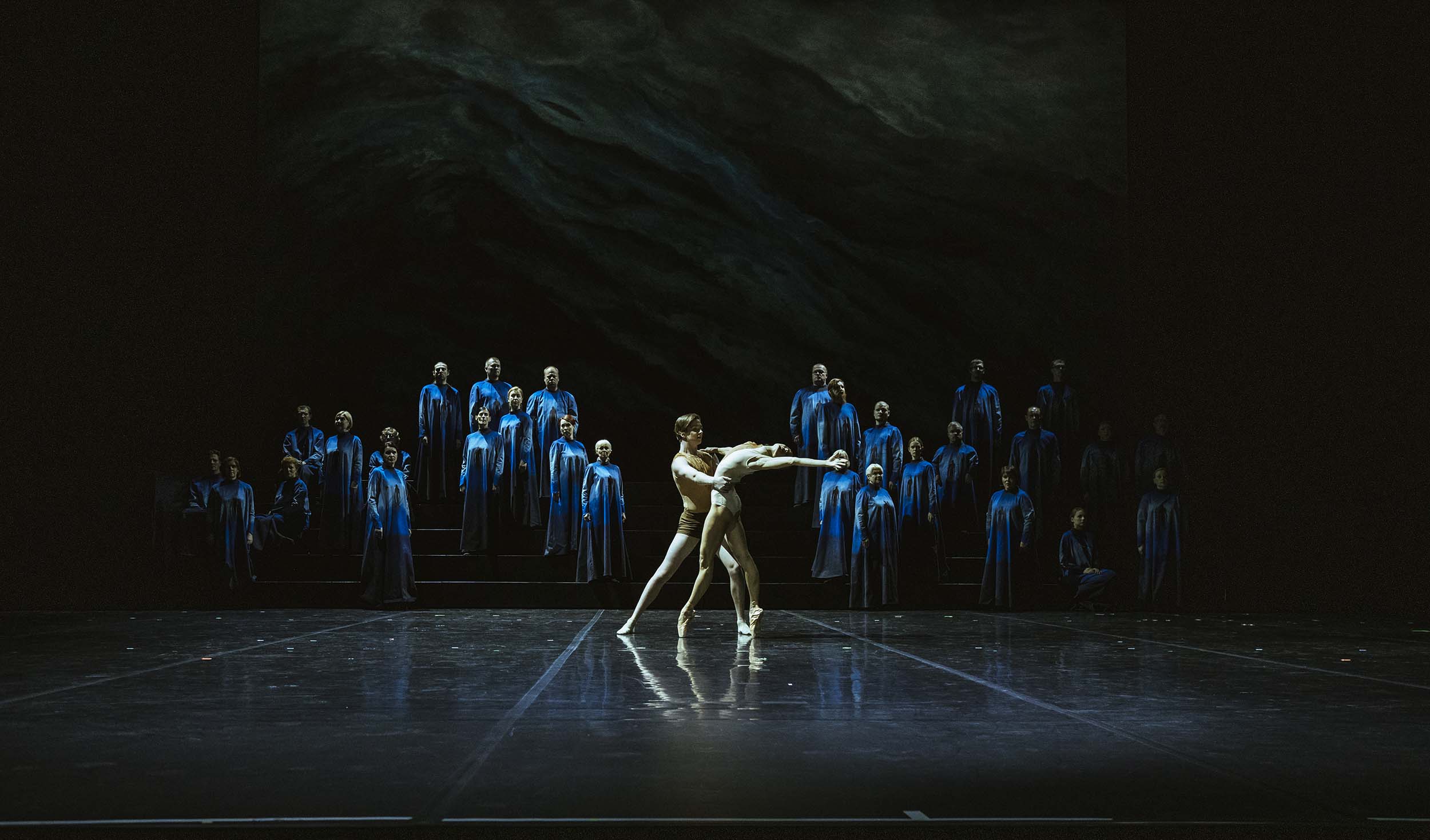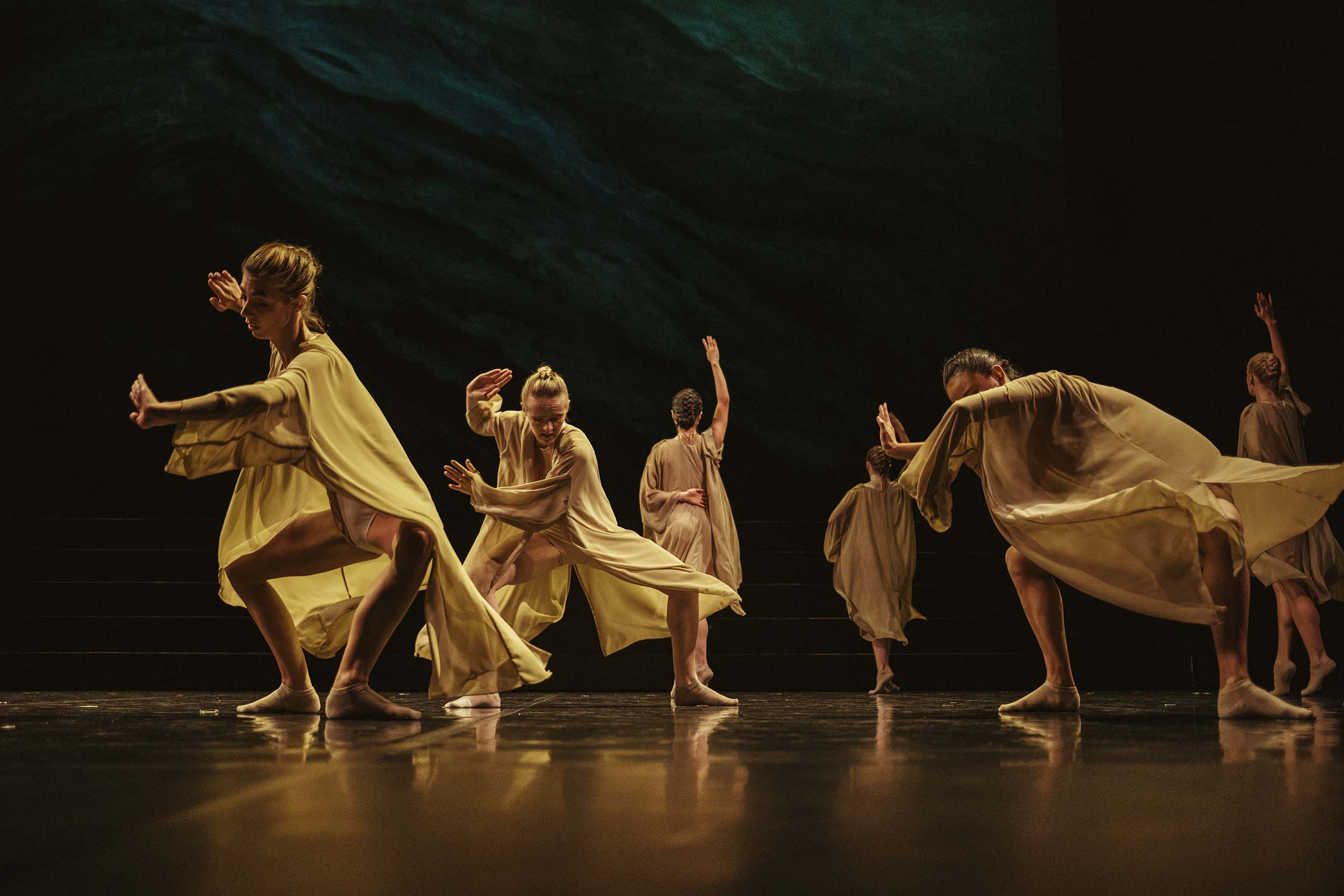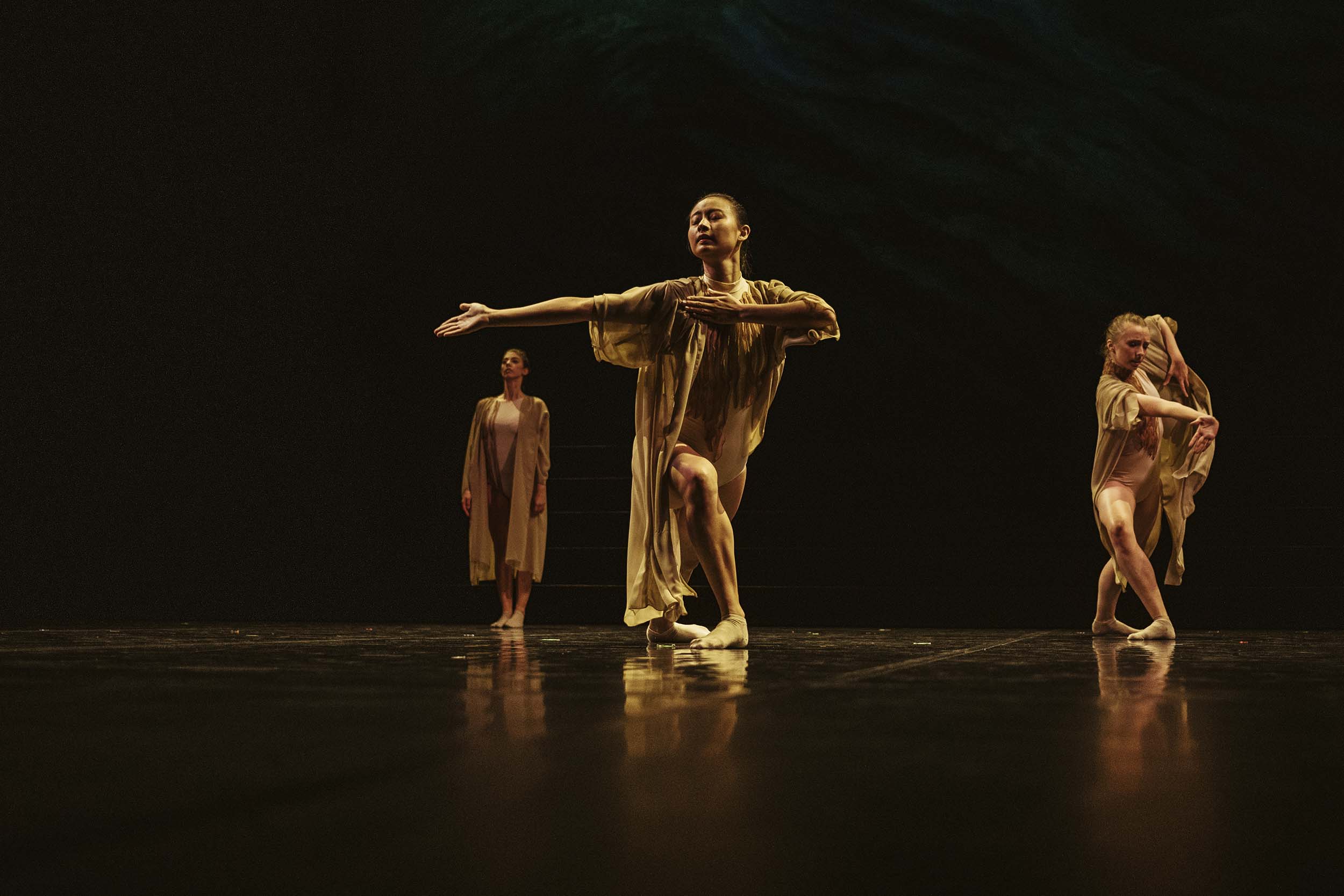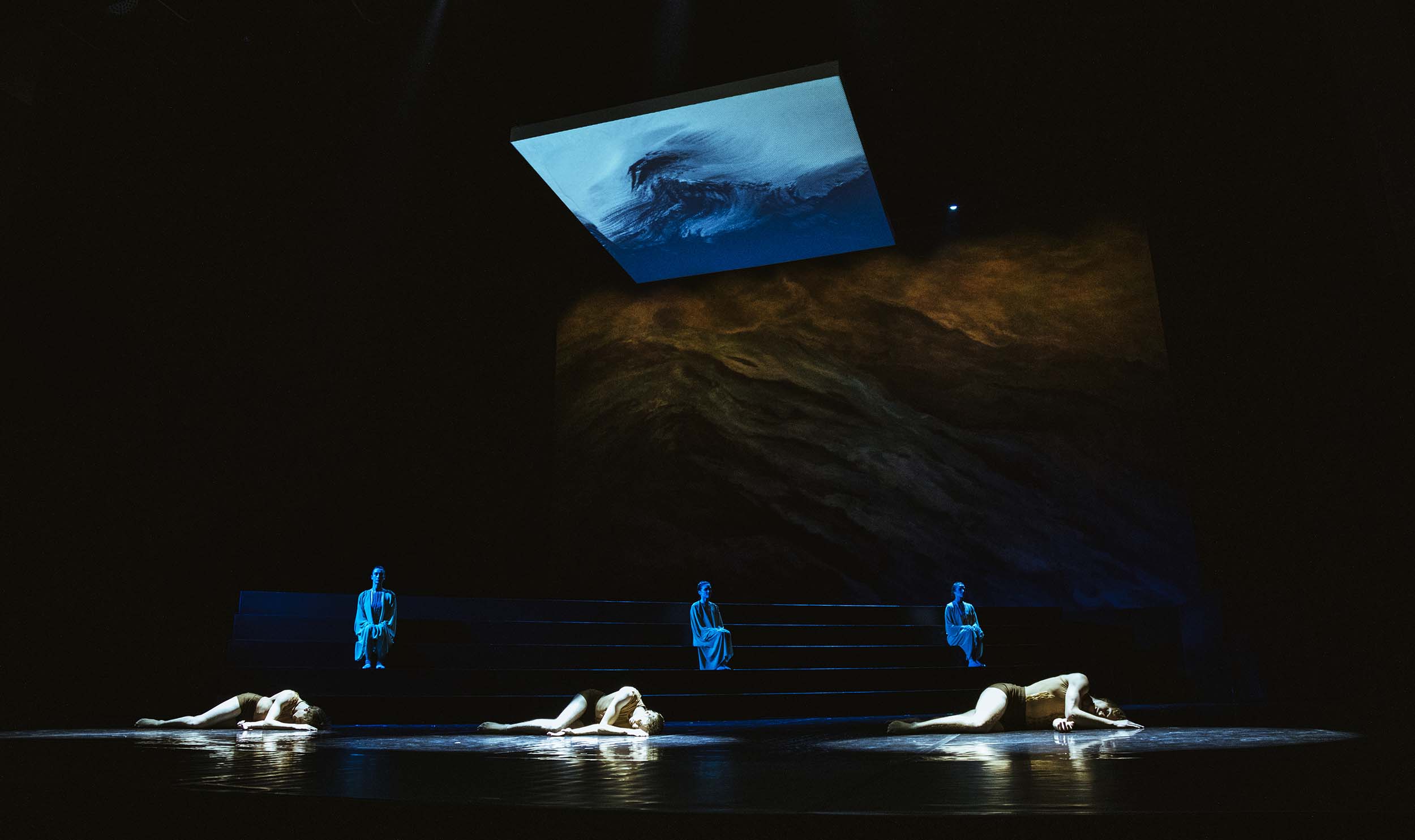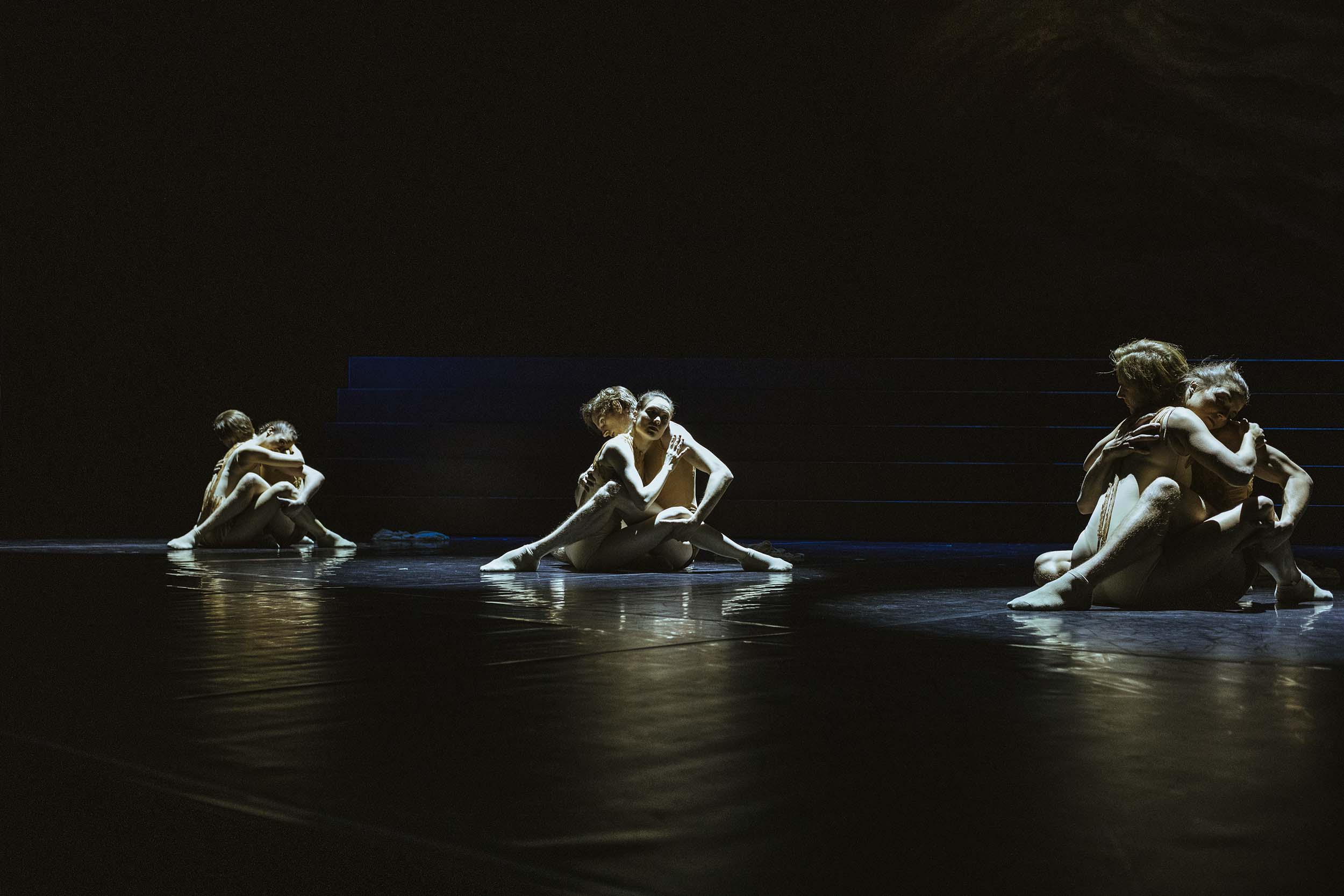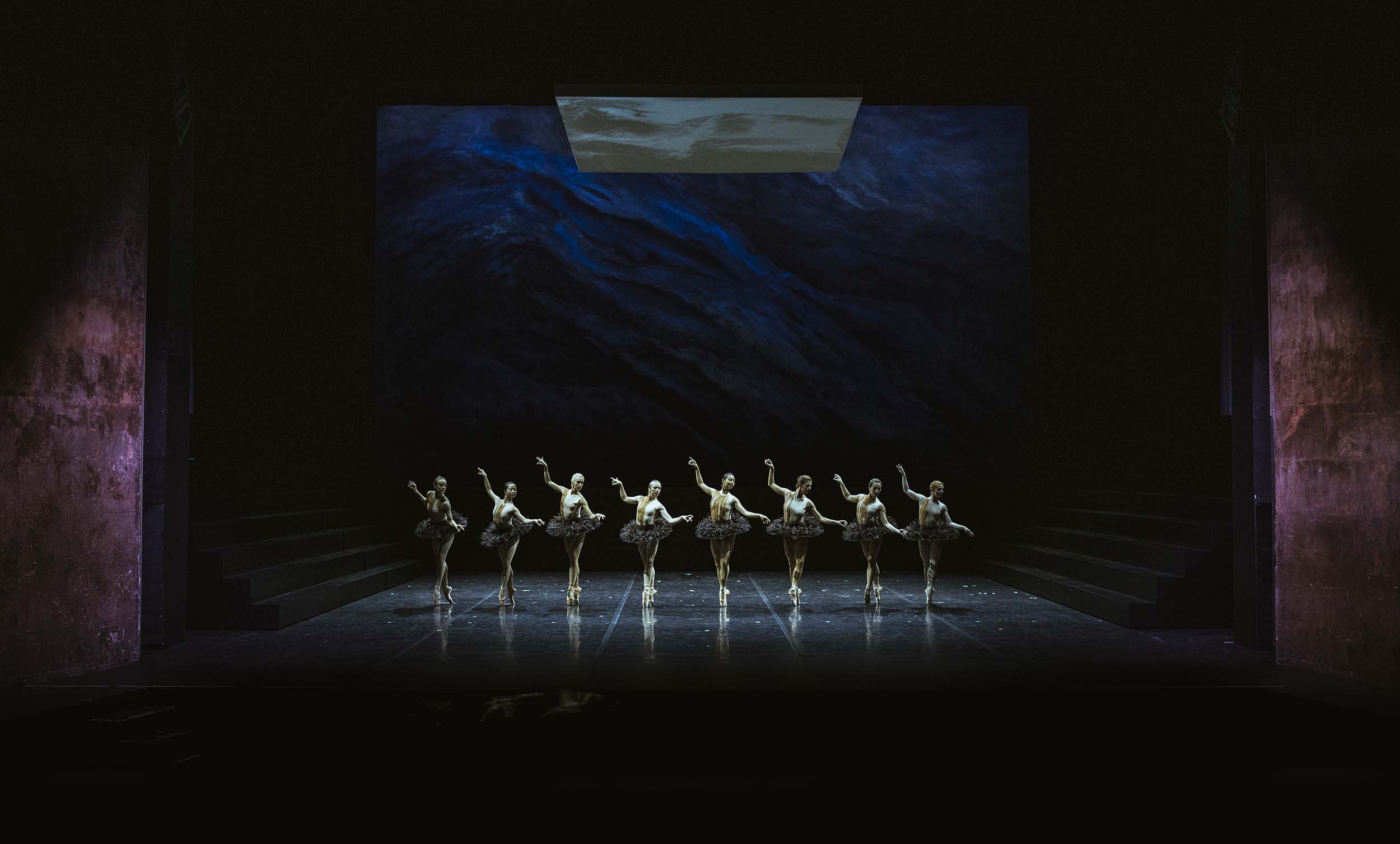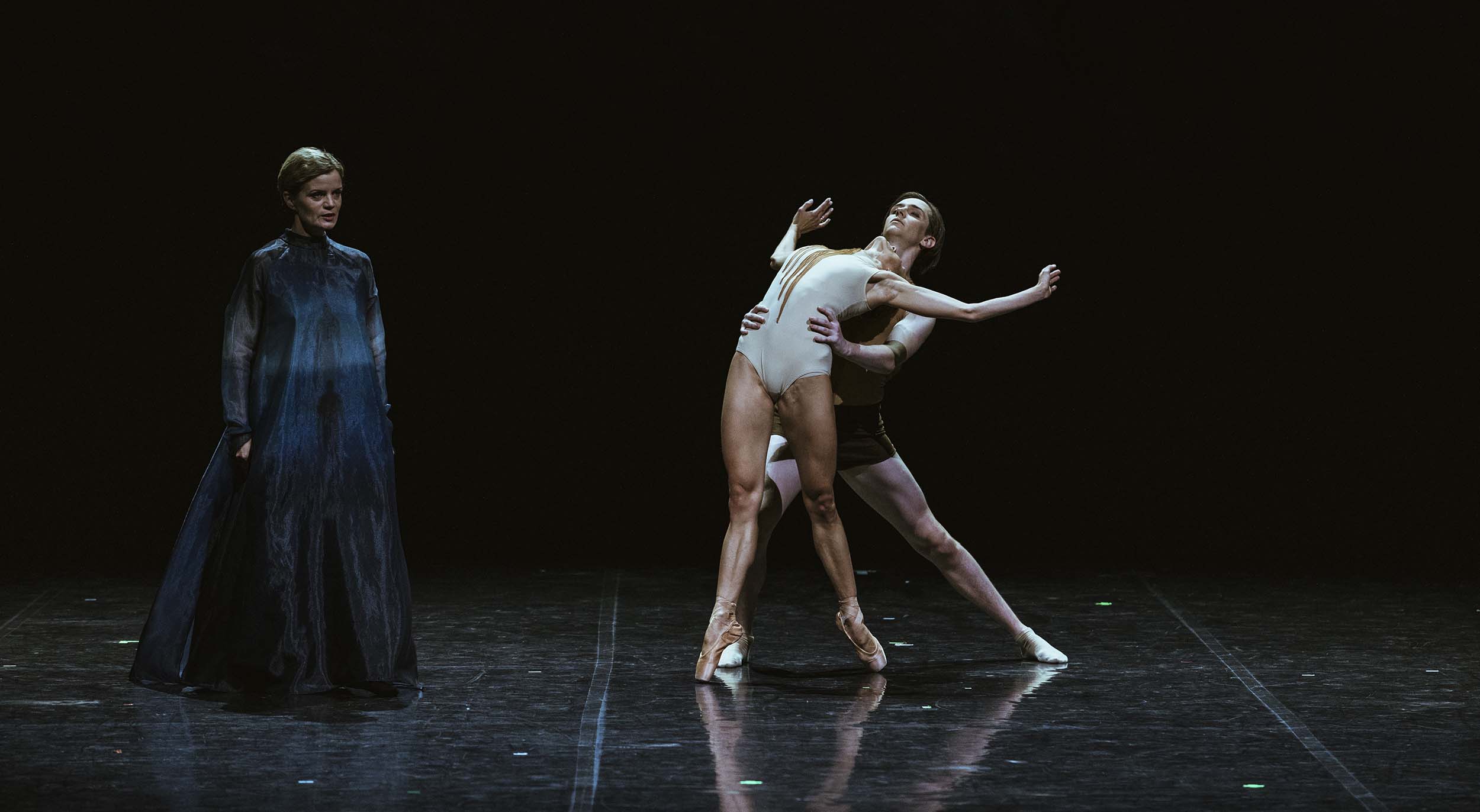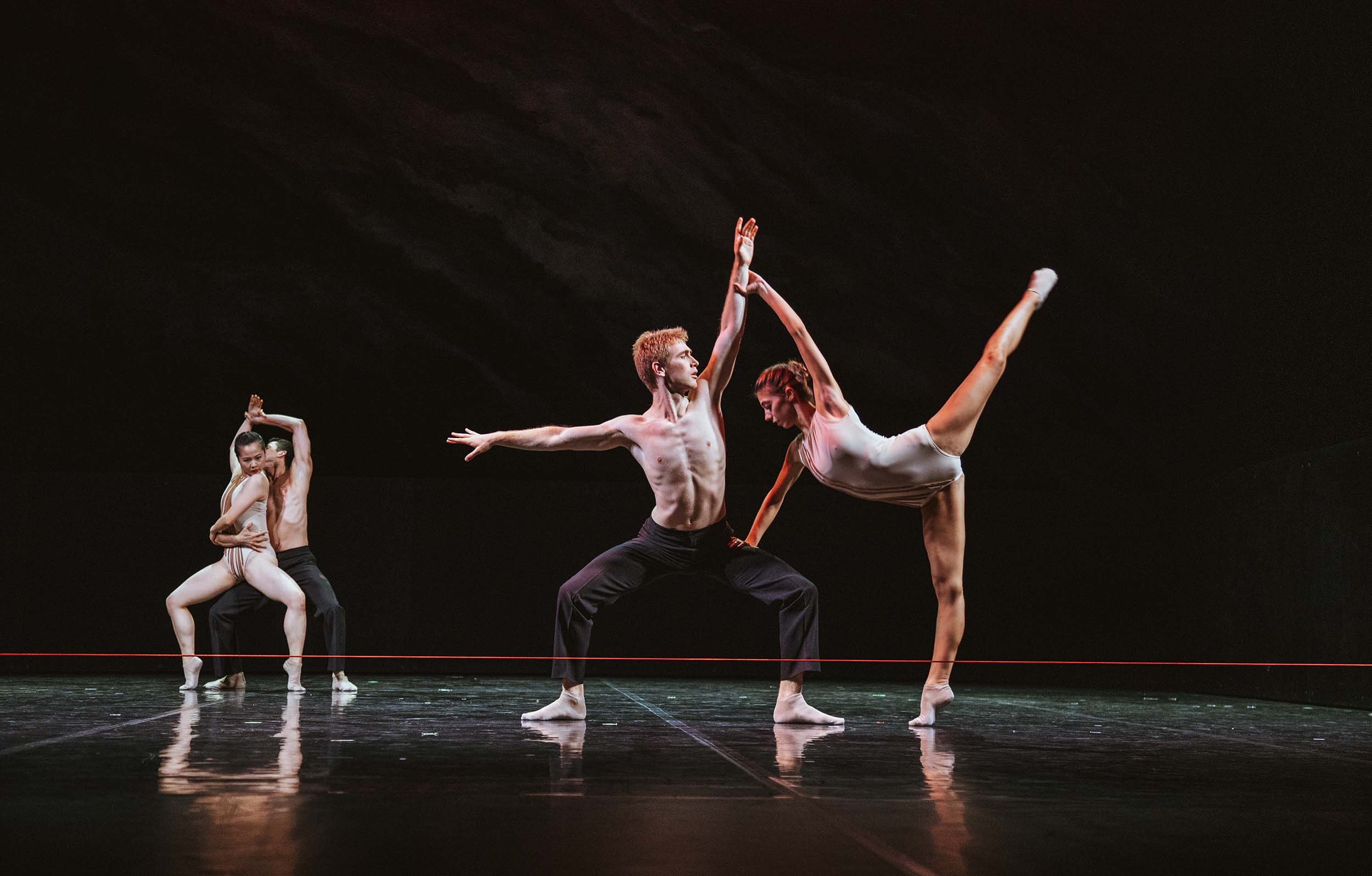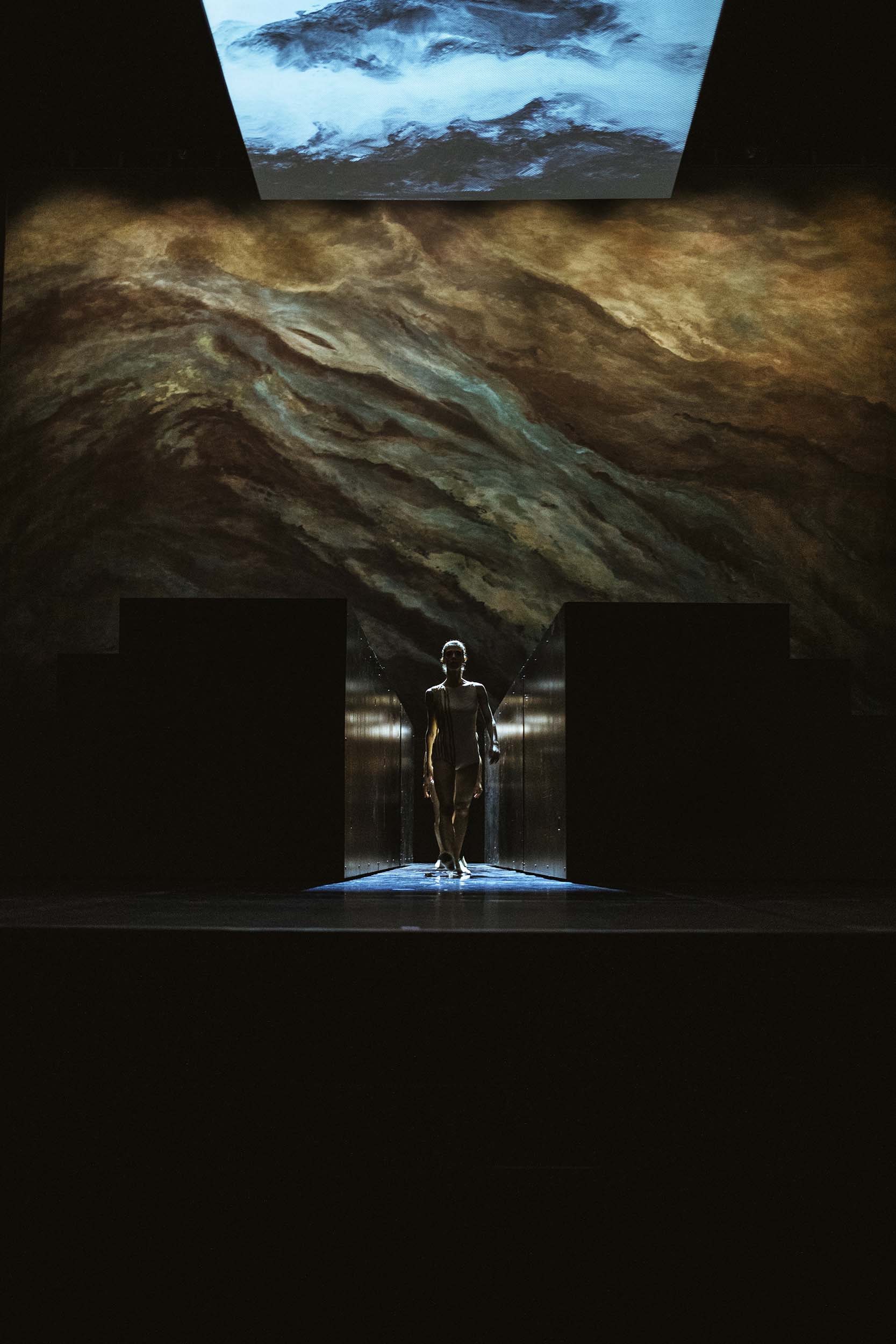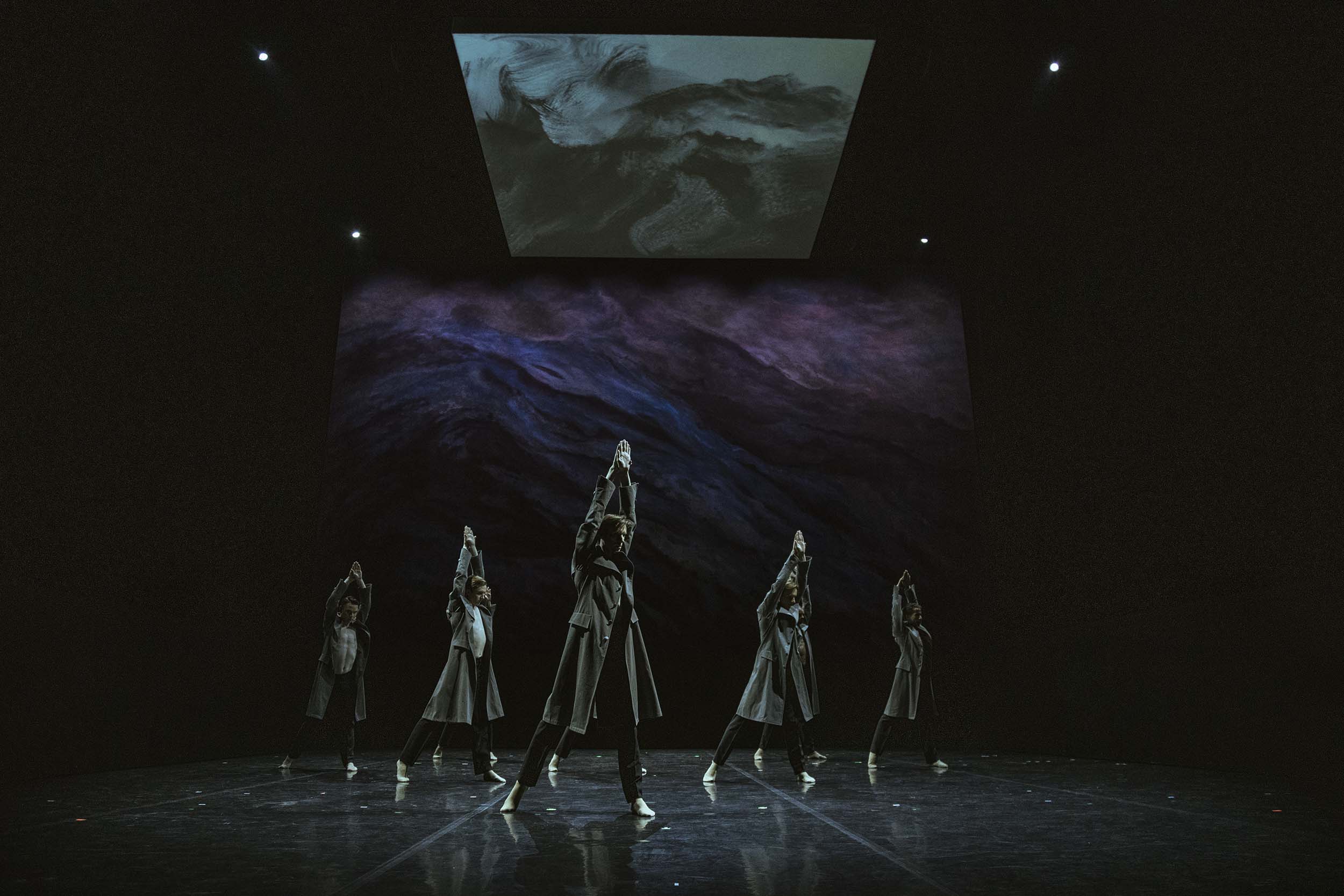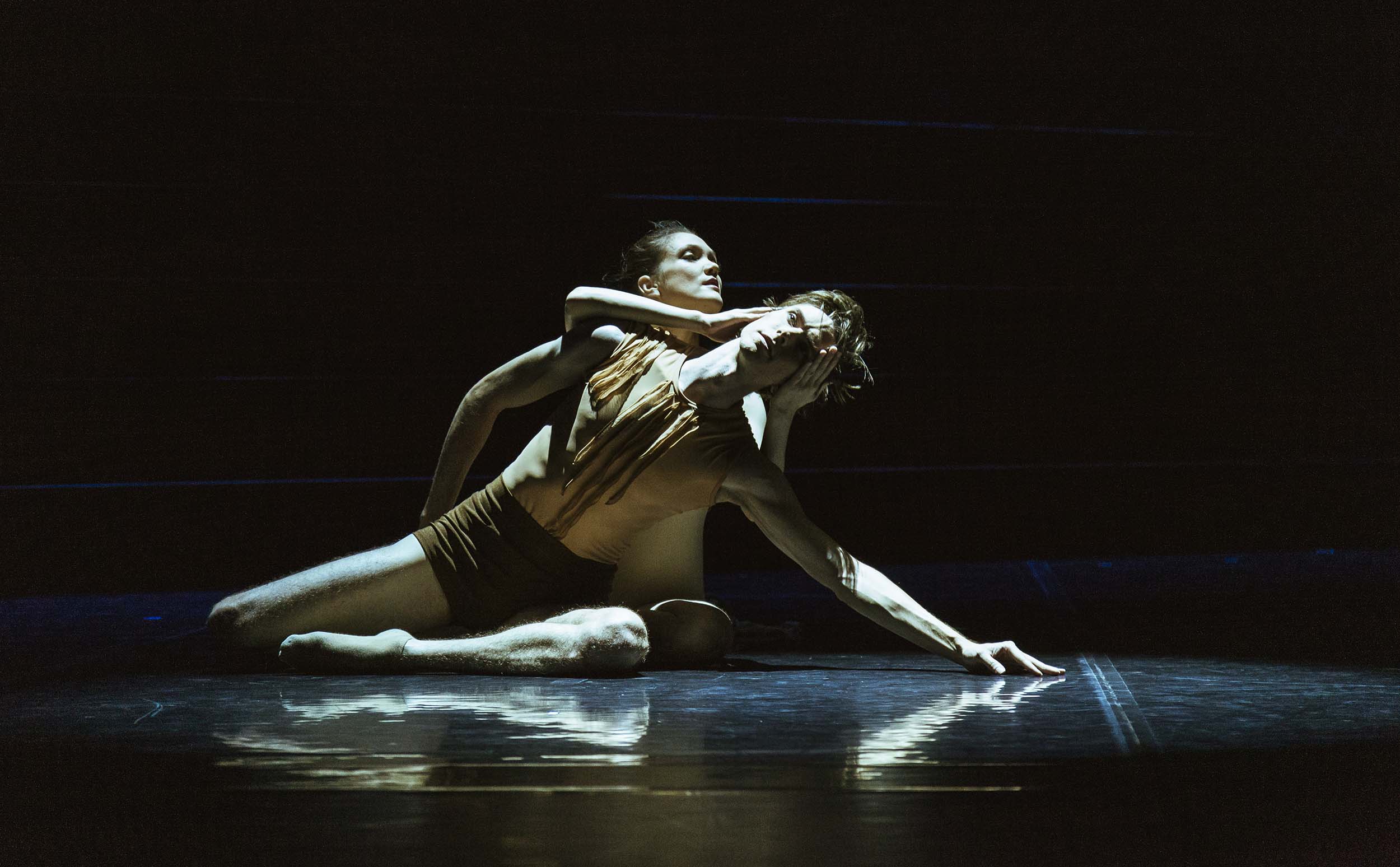Moorland Elegies (Lageda laulud)
Ballet
Moorland elegies is a journey to the most secretive recesses of solitude – to places where some dare not even peer.
Tõnu Kõrvits, composer
The basis for Tõnu Kõrvits’s choral cycle is the almost Gothically dark-tinged poetry of Emily Brontë, which conveys tender soul-states translated into nature motifs.
How to mould meaning to make it understandable to many? Because understanding is important.
It was a snowy winter’s day when I first touched Estonian soil. The crisp cold and blinding snow reminded me of the Beijing of my childhood – nature awakened that distant memory.
When I heard Tõnu’s work for the first time, it seemed like poetry that spoke of distant horizons. At once careful and full-bodied, the music conceals both joy and sadness, theatricality and the sacred – all that touches people’s hearts.
You can find nature in Emily Brontë’s poetry as well. Nature lives free. People feel love and sadness in fallen leaves and moonlight, their tears are temporal and the sea only sighs. If all these ostensibly unconnected motifs are woven together into music, we are closer to sensing precisely the kind of freedom that our inner souls seek in nature.
Wang Yuanyuan, director
Wang Yuanyuan’s work is so exceptional and outstanding that he has been invited as a guest chorographer to the New York City Ballet, the Hong Kong Academy for Performing Arts, the Danish Royal Ballet and the Shanghai Ballet. Besides the best dancer award at the Paris international dance festival, he has won the best choreographer title at international ballet competitions in Varna (Bulgaria), Jackson (USA), Moscow and Shanghai, which makes him the most acclaimed Chinese choreographer.
The premiere on 28 September 2019 in the Grand Building of the Vanemuine.
Both joy and sadness, theatricality and the sacred – all that touches people’s hearts
